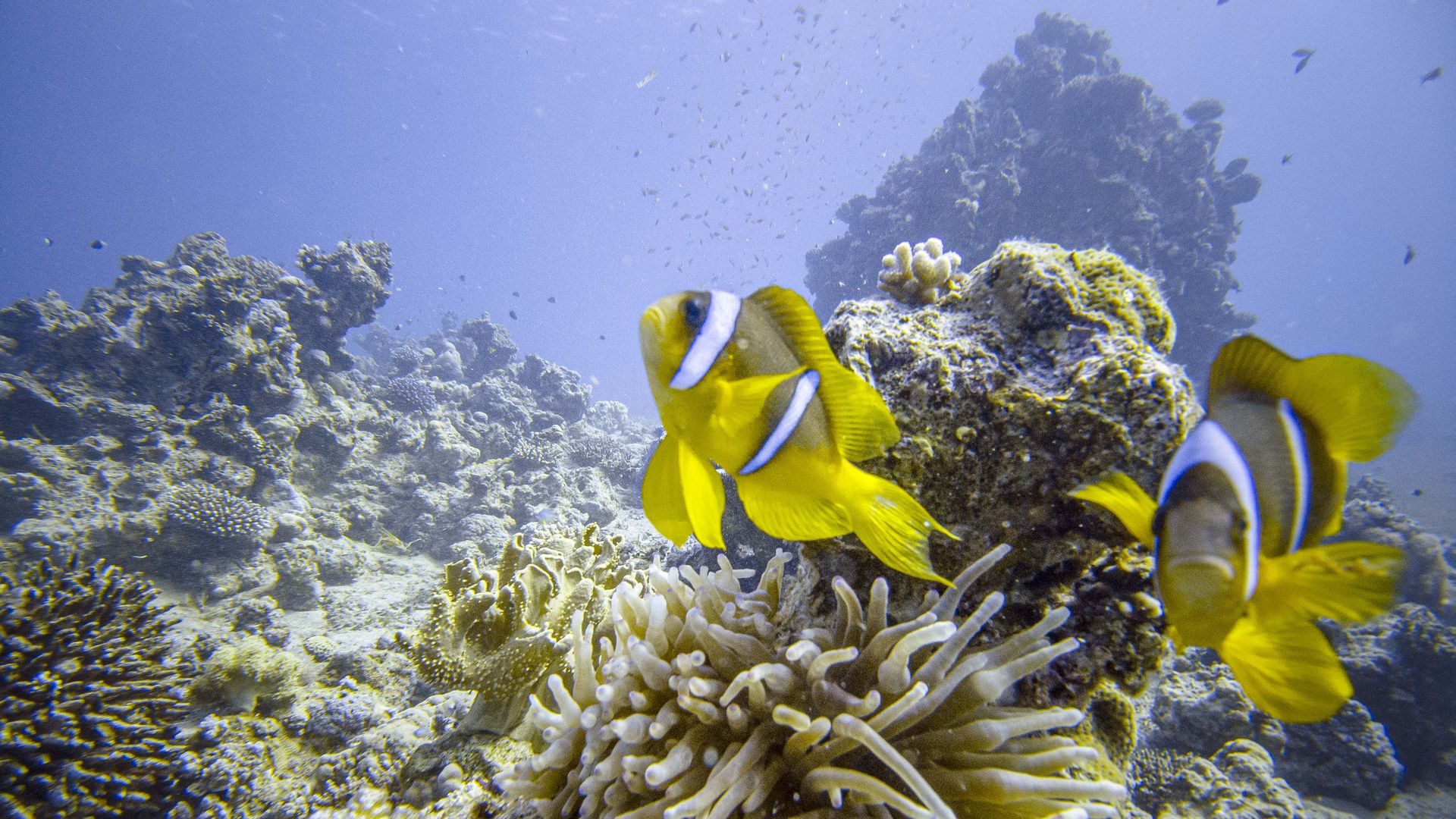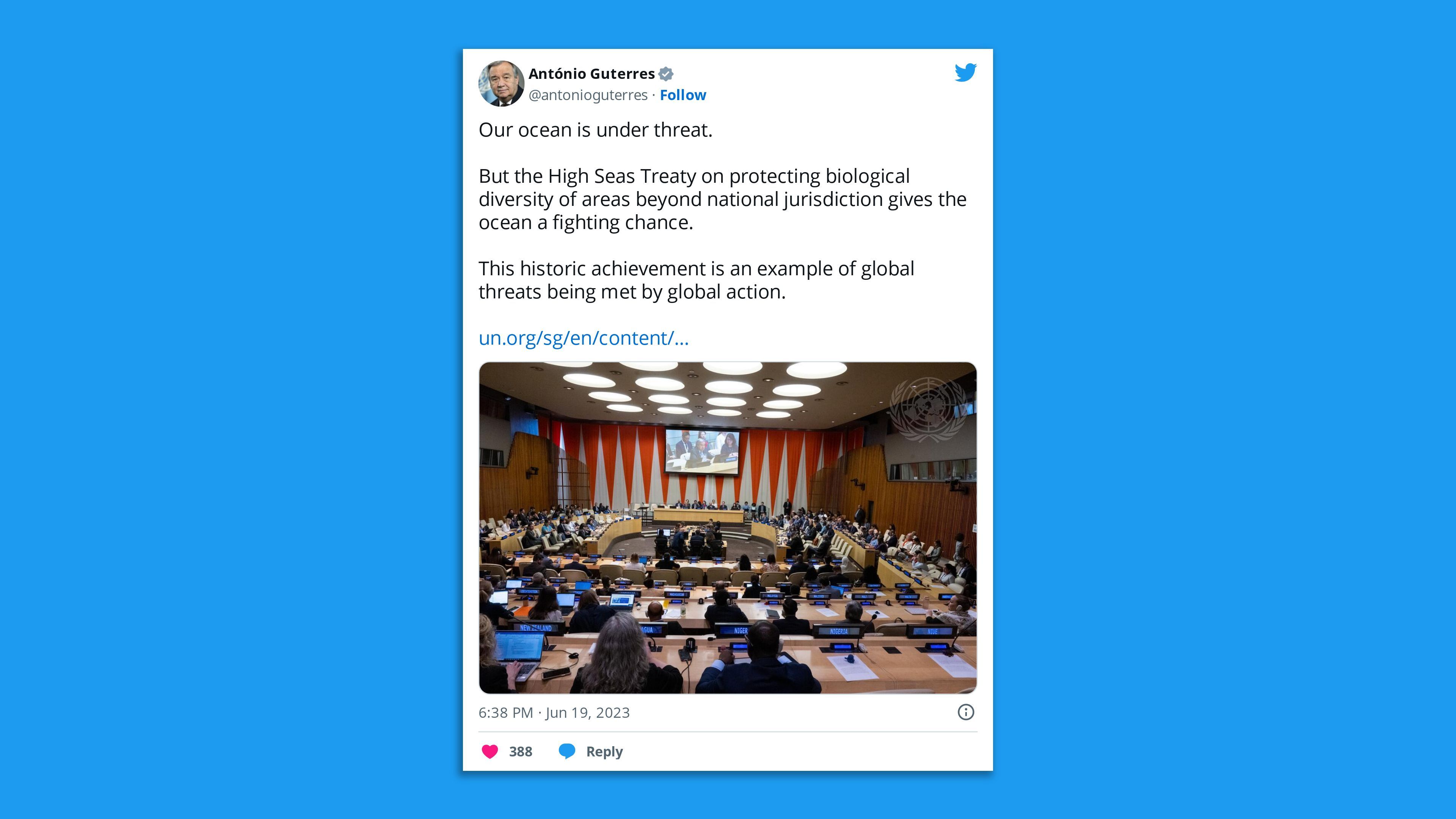Jun 19, 2023 - Science
UN adopts "historic" high seas treaty to protect marine life
Add Axios as your preferred source to
see more of our stories on Google.

Red Sea Clownfish, also known as anemonefish, in a coral reef near Aqaba, Jordan, in December. Photo: Nicolas Economou/NurPhoto via Getty Images

